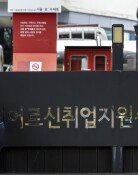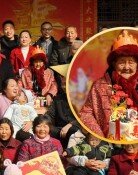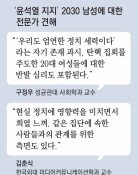[Op-Ed] Womens Labor Participation
[Op-Ed] Womens Labor Participation
Posted September. 21, 2009 08:49,
Of 242 people who passed the civil service exam for administrative posts last year, 51.2 percent or 124 were women. This was the first time that women accounted for more than half of those passing the exam. Furthermore, women earned the highest scores for the seventh consecutive year. They also comprised 65.7 percent of those passing the foreign service exam and 38 percent of those who passed the law bar last year. Indeed, women are dominating all state-administered tests.
It is no surprise that women have made great advances in popular occupations. Young male teachers are a rarity in schools. In the past, major media companies employed just a couple of female reporters a year, but nearly half of reporters are women nowadays. Many talented women work in both the private and public sectors. They match men in job performance, leadership, and commitment to work, traits that are considered necessities in cooperation.
Compared to advanced countries, however, Korea has a long way to go in womens rights. The average labor participation rate of women in the 30-country Organization for Economic Cooperation and Development was 61.3 percent last year. Korea ranked 27th with 54.7 percent. Iceland topped the list (82.5 percent), followed by Sweden (78.2 percent) and Norway (77.4 percent). In womens employment, Korea ranked 24th with 53.2 percent of women working. Korean women have made remarkable advancement in certain occupations, but obstacles to their economic activities remain and gaps between jobs are prevalent.
Housewives are excluded when labor participation and employment rates are calculated. This does not mean, however, that their role and contributions to society are lower than those of working women. Many housewives find fulfillment by devoting themselves to childrearing and housework. It is a different story, however, if they remain home due to tangible and intangible discrimination based on gender. In a rapidly aging society with the worlds lowest birth rate, a viable female workforce is considered a new growth engine. To boost the countrys growth potential, gender discrimination at work must be eliminated and women should be allowed to compete on equal footing with men.
Editorial Writer Kwon Soon-hwal (shkwon@donga.com)







